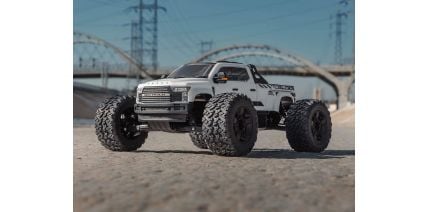The electronic speed controller (ESC) is an essential component in the world of electric motors and robotics. It is an electronic circuit that controls the speed of an electric motor, allowing it to operate at the desired speed and direction. ESCs are used in various applications, including drones, electric cars, model airplanes, and many other devices.
How an Electronic Speed Controller Works
The electronic speed controller works by controlling the power sent to the electric motor. It receives a signal from the device controlling it, such as a remote control or a microcontroller. The ESC then adjusts the voltage and current sent to the motor to change its speed or direction.
The ESC contains a microcontroller that monitors the motor's speed and direction and adjusts the power sent to the motor to maintain the desired speed. The microcontroller receives feedback from the motor and adjusts the power output accordingly. The ESC's design varies based on the motor it controls, with different models available for brushed and brushless motors.
Types of Electronic Speed Controllers
There are two types of electronic speed controllers: brushed and brushless. Brushed ESCs are designed to work with brushed motors, while brushless ESCs are designed to work with brushless motors.
Brushed motors are simple and reliable, making them ideal for low-power applications such as model airplanes and cars. Brushless motors, on the other hand, are more efficient and powerful than brushed motors and are used in high-performance applications such as drones and electric cars.
Advantages of Using an Electronic Speed Controller
Using an electronic speed controller has several advantages, including:
Control
An ESC allows you to have precise control over the speed and direction of your motor. You can adjust the motor's speed and direction based on your needs, making it perfect for robotics and other applications.
Efficiency
Electronic speed controllers are more efficient than mechanical speed controllers, which waste energy as heat. An ESC can control the speed of the motor without wasting energy, making it more efficient and saving energy in the long run.
Safety
An electronic speed controller is designed to protect your motor from overloading or overheating, preventing damage to the motor. It also provides safety features such as overcurrent protection and short-circuit protection, which can prevent accidents and damage to the motor.
Versatility
Electronic speed controllers are versatile and can be used with a wide range of motors, making them ideal for a variety of applications.
Real-Life Applications of Electronic Speed Controllers
Electronic speed controllers are used in many real-life applications, including:
Model RC Airplanes
Electronic speed controllers are also used in model RC airplanes to control the motor's speed and direction. ESCs are used in brushed motors in model airplanes.
RC Electric Cars
Electronic speed controllers are used in RC electric cars to control the motor's speed and direction. The ESC controls the amount of power sent to the motor, allowing the car to accelerate and decelerate smoothly.
Electronic speed controllers are widely used in radio controlled (RC) cars to control the speed and direction of the motor. RC cars are popular among hobbyists and enthusiasts, and using an electronic speed controller is essential to get the most out of your car.
RC cars use both brushed and brushless motors, and electronic speed controllers are available for both types of motors. Brushed motors are commonly used in entry-level and low-cost RC cars, while brushless motors are used in high-performance and competition-level RC cars.
The electronic speed controller in an RC car allows you to control the speed and direction of the motor, giving you precise control over your car's movement. It also allows you to adjust the acceleration and braking of the car, giving you better control over your car's handling.
Using an electronic speed controller also has safety benefits. It can prevent damage to your car by protecting it from overloading or overheating. Additionally, it can help prevent accidents by providing safety features such as overcurrent protection and short-circuit protection.
Overall, electronic speed controllers are essential components in RC cars, providing better control, performance, and safety. Whether you're a beginner or an experienced hobbyist, using an electronic speed controller can help you get the most out of your RC car.
Conclusion
The electronic speed controller is an essential component in the world of electric motors and robotics. It allows you to have precise control over the speed and direction of your motor, making it perfect for a wide range of applications. Using an ESC has several advantages, including efficiency, safety, and versatility. Electronic speed controllers are used in many real-life applications, including drones, electric cars, and model airplanes.




